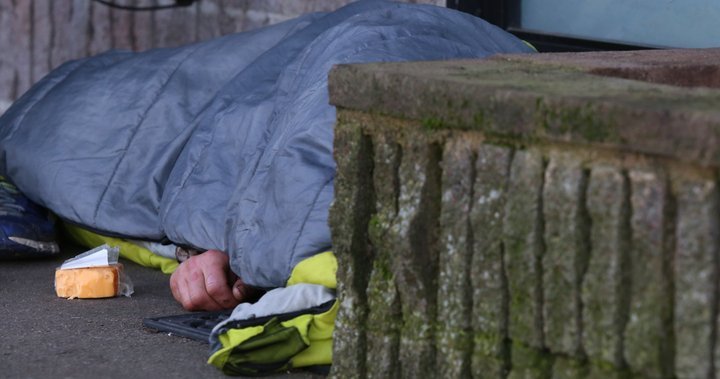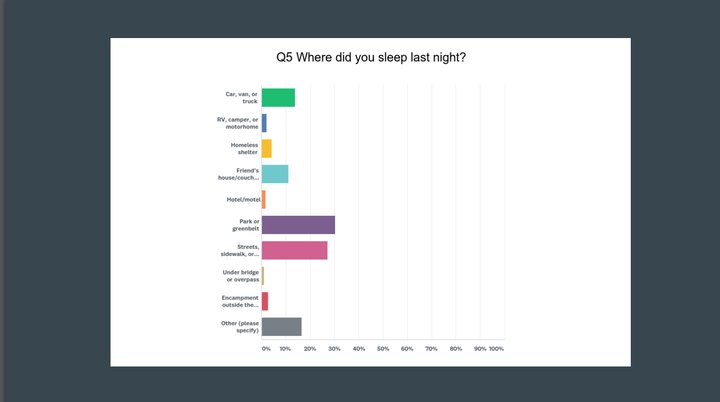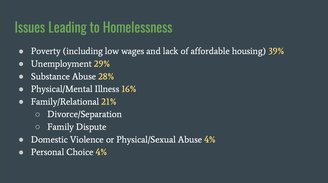
File photo
On Monday, the Supreme Court declined to hear a case dealing with homeless encampments in public spaces, thus allowing to stand a ruling from the Ninth Circuit Court of Appeals that it’s a violation of the Eighth Amendment to arrest the homeless if there is no shelter space available. This essentially means that it is considered cruel and unusual punishment to arrest people who may be sleeping in public spaces if there is no shelter space available for them.
In the 2018 decision (known as Martin v. Boise) Judge Marsha S. Berzon wrote the opinion of the Ninth Circuit and stated that municipalities cannot “criminalize conduct that is an unavoidable consequence of being homeless — namely sitting, lying, or sleeping on the streets.” The case originated out of Boise, Idaho where six current and former homeless folks sued the city.
So what does that mean for Humboldt? The Outpost reached out to Eureka’s Police Chief Steve Watson. Eureka has by far the largest homeless population in the county, with an estimated total of 653, according to the most recent point-in-time count. (The Arcata/Manila area comes in second with 263).

Steve Watson
Watson said he was surprised that the Supreme Court decided not to hear the case, given its potentially “massive impact on the western states that are covered under the jurisdiction of the Ninth Circuit Court of Appeals.”
“Cities with large homeless populations are drowning in this issue and really need help in dealing with long-term solutions which are proving to be very difficult to come by,” Watson said. “[The ruling] leaves more questions than answers, and we want to craft something that gets it right and leaves us with the tools necessary to ensure a safe and livable community.”
He said there will not be significant changes to EPD’s policies when it comes to addressing people experiencing homelessness. Right after the Ninth Circuit’s ruling in Sept. 2018, Watson drafted an update to Eureka’s public camping ordinance, which suspended citations issued for people sleeping in public spaces or in their vehicles. In the update, Watson pointed out that the ruling does not apply to “individuals who do have access to free shelter or the means to pay for it, but choose not to use it.” The ruling also does not apply to individuals trespassing on private property or public property that is closed to access.
“There is a difference between setting up a sleeping bag and a small shelter for purposes of getting some sleep during the hours normally associated with it and setting up a semi-permanent encampment whenever and wherever you want,” Watson said. “I don’t believe that the decision means that we have lost all ability to remove encampments on public spaces, because that would be utter chaos and mass destruction.”

Sleeping stats for Eureka’s homeless. Courtesy of EPD
Eureka’s homeless population is unique in some ways. According to a March 2019 EPD survey of 190 people experiencing homelessness, nearly 60 percent of them have been diagnosed with a mental health disorder, with bipolar disorder affecting 58 percent. The same survey found parks and greenbelts were the most common areas for people to sleep, followed by streets or sidewalks. The most common service used by the survey’s respondents is the Saint Vincent de Paul’s free food service (78 percent), followed by Betty Chinn’s foundation and the Eureka Rescue Mission.
Brian Hall is the director of the Eureka Rescue Mission and said the Mission shelters anywhere from 40-50 women and children and nearly 90 men each night. They provide a number of services for the homeless that extend beyond just a place to sleep. They offer access to the county’s Department of Health and Human Services workers, showers and hot meals. Hall said the Mission served over 13,000 meals in October alone.
“It’s really easy to drive down the street and see people pushing a cart and to point at those people and be offended,” Hall told the Outpost. “But unless you’ve suffered some of their trauma, then you don’t really know how they got there. Most people that come [to the Mission] are broken and we don’t want to break them anymore.”

Issues causing Homelessness. Courtesy of EPD
Hall said that a lot of the people the Mission serves suffer from mental illness and drug addiction. He said the staff there are “quite prepared” to serve those populations, and he thanked God for EPD’s Community Safety Enhancement Team and the work they do helping people transition from life on the streets.
“They are really, really good people,” Hall said. “[CSET gets] to take people to places where they know they are going to get help.”
Shelters across the county have a number of reasons for limiting access. Chief Watson called the three main limiting factors the “Three Ps”: pets, property and partners. He also said mental illness and substance abuse are reasons as to why someone may not be granted access. Watson hopes that one of the upsides of the Martin decision will be an uptick in funding and political will to address homelessness and its underlying causes, such as mental health and addiction.
“[The decision] will continue to increase the urgency for the federal and state governments to release more funding to help local governments come up with affordable housing as well as the services needed to treat barriers to housing,” Watson said. “We need more shelters, but the concerns are the money being invested in the temporary shelters are taking money away from more long-term housing solutions.”
CLICK TO MANAGE